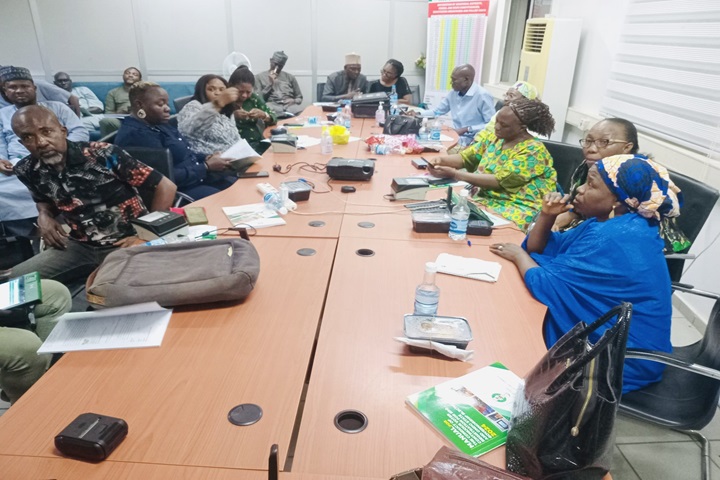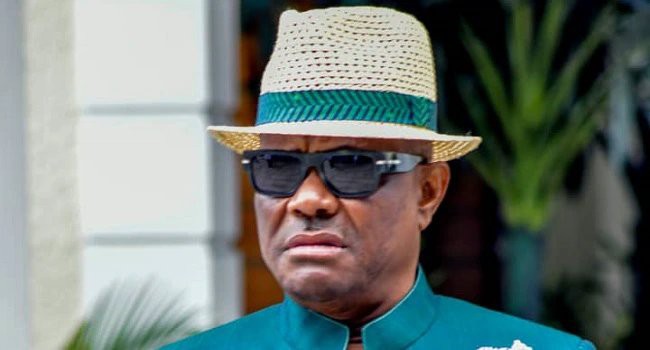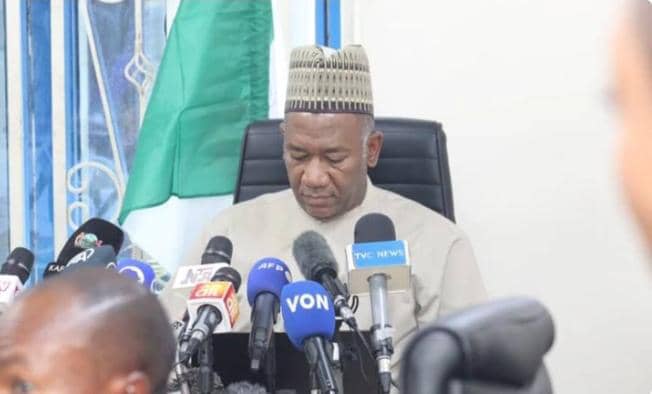Featured
How Nigeria rejected Binance’s $5 million offer for Gambaryan’s release

Binance is one of the world’s largest cryptocurrency exchanges, offering a platform for buying, selling, and trading various digital currencies.
The digital currencies include Bitcoin, Ethereum, and many others, which provide services such as spot trading, futures trading, staking.
It has a decentralized exchange (DEX) and offers financial products like savings, loans, and NFT marketplaces.
Binance attempted to negotiate a settlement with Nigeria over its tax liabilities in 2024.
The cryptocurrency firm proposed a $5 million down payment while securing the release of its detained executive.
The offer was made during a meeting facilitated by Binance legal counsel, Arnold & Porter.
Nigeria detained Tigran Gambaryan, Binance’s head of financial crimes compliance, on 26 February 2024.
Authorities accused Binance of sabotaging Nigeria’s economy through illegal financial operations.
Gambaryan was later released on humanitarian grounds, but legal cases against Binance continued.
Nigeria accused Binance of operating without necessary licences and violating money laundering laws.
Authorities said Binance’s peer-to-peer platform disrupted Nigeria’s foreign exchange market.
They alleged Binance facilitated speculative trading that worsened currency volatility and economic instability.
Binance admitted operating in Nigeria for six years without registering with relevant authorities.
As of early 2024, Binance had 386,256 active Nigerian users and a $21.6 billion trading volume.
The company reported earning $35.4 million in net revenue from Nigeria in 2023.
Nigeria demanded Binance settle its four-year tax liability (2020-2023) with a 10% annual interest.
Binance argued its total revenue from Nigeria between 2020 and 2023 was about $140 million.
The company estimated its total tax liability at approximately $7 million.
During negotiations, Binance offered $5 million to be held in an escrow account.
The firm insisted the payment should only be released after Gambaryan’s departure from Nigeria.
Binance also agreed to discuss sharing a list of its top 100 Nigerian users.
The company planned to hire Baker Tilly and Chainalysis to assess its tax obligations.
Nigeria found Binance’s offer unacceptable and instructed White & Case LLP to reject it.
Officials considered the offer insufficient given Binance’s financial impact on the Nigerian economy.
Nigeria objected when an Arnold & Porter lawyer suggested Gambaryan was being held hostage.
The negotiation was immediately halted after Nigeria’s reaction to the remark.
A government official stated Binance should provide full data on its Nigerian transactions.
The official noted Binance complied with U.S. authorities but resisted Nigeria’s demands.
Nigeria is now prosecuting Binance in two separate court cases.
The Economic and Financial Crimes Commission (EFCC) is handling a $35.4 million money laundering case.
The Federal High Court amended charges on 25 November 2024, after Gambaryan’s release.
Binance is accused of operating without a valid licence under Nigeria’s banking laws.
Authorities claim Binance unlawfully engaged in foreign exchange trading without authorization.
The company allegedly concealed $35.4 million in revenue generated in Nigeria in 2023.
These offences violate Nigeria’s Money Laundering (Prevention and Prohibition) Act, 2022.
The Federal Inland Revenue Service (FIRS) also filed a lawsuit against Binance.
FIRS seeks $79.51 billion and ₦231 million in damages for economic losses.
The case, filed in Abuja’s Federal High Court, includes tax evasion charges.
Nigeria demands Binance pay $2.001 billion in taxes for 2022 and 2023.
FIRS accuses Binance of failing to register for tax compliance despite its Nigerian presence.
The lawsuit claims Binance violated Nigeria’s Companies Income Tax Act and other regulations.
An affidavit revealed Binance’s six-year unregistered operation in Nigeria.
The platform had over 386,000 Nigerian users and massive trading volumes.
FIRS demands Binance file income tax returns for 2022 and 2023.
The agency also seeks penalties, including a 10% annual interest on unpaid taxes.
Nigeria insists Binance must fully account for its financial activities in the country.
The cases against Binance remain ongoing, with authorities pushing for accountability.
For Diaspora Digital Media Updates click on Whatsapp, or Telegram. For eyewitness accounts/ reports/ articles, write to: citizenreports@diasporadigitalmedia.com. Follow us on X (Fomerly Twitter) or Facebook












